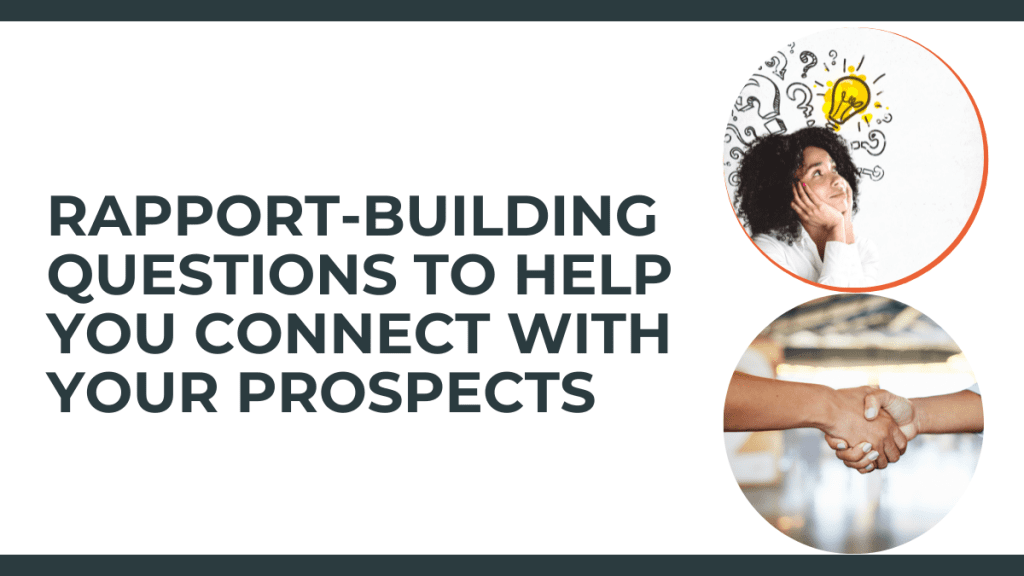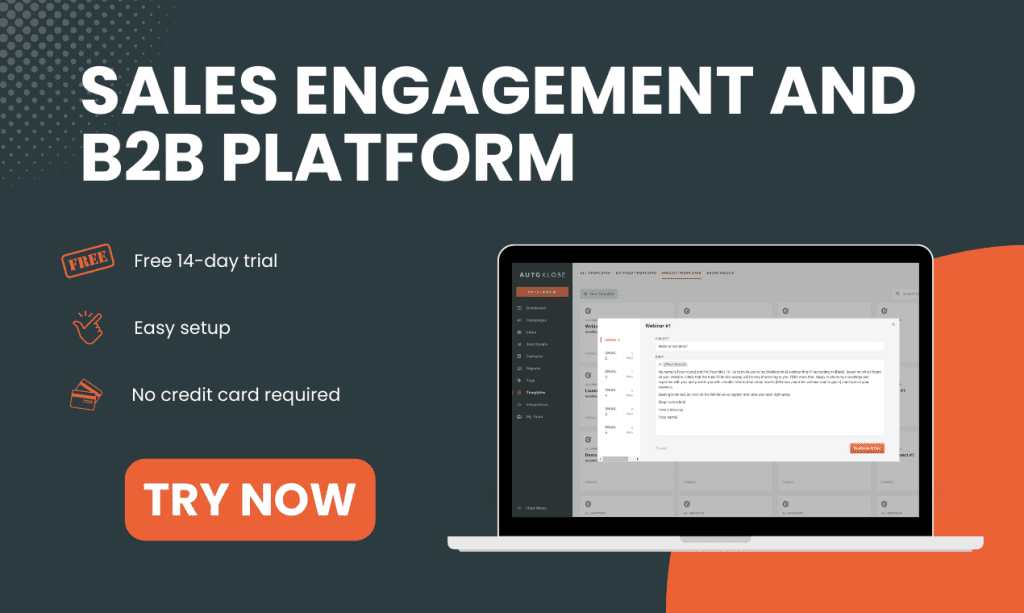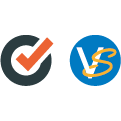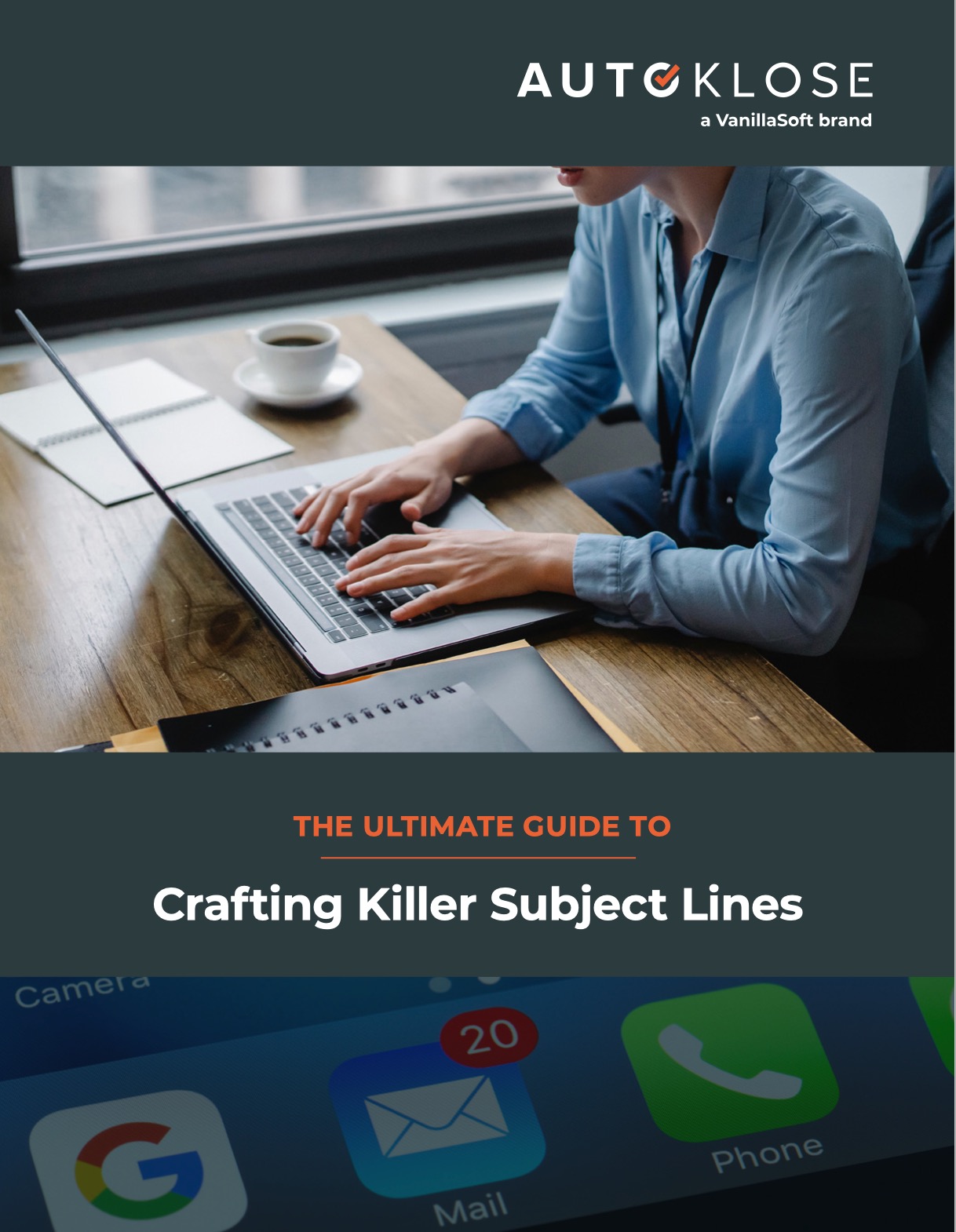
Sales heavily relies on psychology.
In order to convince their prospects to purchase their product or service, sales reps have to get into their heads and understand what makes them tick.
Yes, you can do this in many ways by collecting all kinds of customer data, but it’s best when you can hear everything you need to know directly from your prospects and customers themselves.
One-on-one communication is an unparalleled source of information in this case. But! Before your prospects decide to open up and tell you more about their needs, desires, and problems, you need to connect with them. They have to feel comfortable with you.
And to achieve this, it’s crucial to build rapport!
Rapport sets the scene for a more meaningful conversation, which is why we’ll discuss this technique in more detail and list some of the most effective rapport-building questions.
- What Is Rapport?
- Tips for Building Rapport with Customers
- The 3 Elements of Successful Rapport-Building Questions
- Examples of Effective Rapport-Building Questions
- 1. I see you live in [city/state]. Have you ever visited [local restaurant/local attraction]? They say it’s great.
- 2. My [kid/cousin/relative] wants to become a [prospect’s profession]? Is there a tip or piece of advice you have for them?
- 3. Have you or your clients been affected by the current situation?
- 4. Your blog on [the topic/issue] was an excellent read. What’s your take on [another topic relevant to your prospect]?
- Over to You
What Is Rapport?
Rapport is defined as a friendly, meaningful relationship with people.
It goes deeper than your average ice-breaking small talk, although building rapport in sales is sometimes dismissed as a mere scheme for pushing your agenda subtly. This, of course, can be the case, but if you want to connect with your prospects beyond the surface level and create an emotional bond, you should be genuinely interested in helping them.
When you set up a safe and friendly climate, you open the doors of communication and help your prospects overcome their reluctance to share their problems, thoughts, and ideas.
And let’s not forget that on average, it takes at least eight attempts to reach your prospect, which means that you’d better not blow your chances by asking something trivial “What are your plans for the weekend?”
Tips for Building Rapport with Customers
Building a strong rapport with your prospects is a vital part of any successful business. It’s not just about providing excellent products or services, but also about creating a positive prospect experience that leaves a lasting impression.
In today’s highly competitive market, where prospects have access to a wide range of choices, it’s more important than ever to stand out and establish a relationship with them. Whether you’re just starting out or looking to improve your existing prospect relationships, these tips will help you establish a strong foundation for success:
- Personalize your prospect outreach: Avoid generic outreach and instead use the prospect’s name and introduce yourself and your business. Show that you have taken the time to research and understand their needs.
- Align with the prospect’s goals and needs: Show prospects that you’re dedicated to solving their problems and helping them achieve their goals by offering a personalized experience that demonstrates your understanding of their unique situation.
- Obtain prospect feedback: Seek out and value prospect feedback, as it can help you better understand their needs and concerns, and refine your approach to outreach and sales.
- Follow up in a timely manner: Make sure to follow up with prospects promptly and regularly to keep them engaged and interested. This shows that you value their time and are invested in building a relationship with them.
- Be authentic: Build rapport by being yourself and showing genuine interest in the prospect. People can tell when you’re being insincere, so focus on building a real connection rather than just trying to make a sale.
The 3 Elements of Successful Rapport-Building Questions
Using the right rapport-building questions, you’ll be able to spark an authentic conversation with your prospect.
There are 3 elements of a successful rapport-building question.
1. Personalization
Don’t be surprised if a prospect blows you off or gives you a blank stare if you ask them something along the lines of “What’s the weather like?” or “What are your plans for this summer?”
Although friendly and seemingly showing a particular interest in the prospect, such questions can be directed at and answered by virtually anyone.
If you really want to show that you’re interested in your prospect, you should ask a highly specific and personalized question.
2. Uniqueness
Being predictable isn’t a good thing in sales.
You should surprise your prospect a bit with an unexpected and unique question that will catch them off guard and perhaps get them to give you an honest answer.
3. Appropriateness
While it’s a good thing to take your prospect by surprise, by no means should you shock them.
Staying within the boundaries of decency and appropriateness is highly recommended. Being interested in your prospect professionally is one thing but crossing the line and being intrusive is something completely different.
Let’s say your prospect says they just got back from a trade show in Las Vegas. Asking them, “Oh, yeah? Won any money?” isn’t exactly the best way to get the conversation going.

Examples of Effective Rapport-Building Questions
No matter what you do, don’t ask closed questions.
A yes-no question will most likely hinder the interaction before it even properly starts.
You should give your prospect an opportunity to answer more elaborately.
Here are some ideas of rapport-building questions to help draw your prospects into the conversation.
1. I see you live in [city/state]. Have you ever visited [local restaurant/local attraction]? They say it’s great.
Location-based questions can be an excellent way to break the ice and find common ground with your prospects.
You’ll demonstrate that you know something about them and establish some kind of familiarity by mentioning a possibly shared experience.
This will allow you to expand a conversation and find out some personal details about them, which you can later use to tailor your messaging or tweak your pitch and make it more relatable.
Other location-based rapport-building questions that are effective are:
- What’s it like to live in [city]? I’ve heard that …
- I was thinking about visiting [city/state]. Do you have any recommendations?
- What’s [event or festival] in your city/state like? Is it worth visiting?
- What brought you to [city/state]?
- Would you say [city/state] is a good place for [your prospect’s industry, company, or profession]?
- Do you commute to your office or work remotely?
- Are there other similar companies/businesses in your [city/state], or is yours one of a kind?
2. My [kid/cousin/relative] wants to become a [prospect’s profession]? Is there a tip or piece of advice you have for them?
This question can uncover a lot of valuable information about your prospect.
It’s no secret that people love to talk about themselves and their job, in particular. It’s an opportunity for you to build on the conversation and ask some additional questions that will give you insights into their daily routine, their preferences, and practices.
And you won’t even have to ask them directly!
For example, you might find out that their mornings are pretty hectic and that they don’t have enough time to check their emails before noon – meaning you should take notes and never reach out to them at 9 a.m., for example.
Other career-related questions you can use to build rapport and at the same time get to know your prospects are:
- I saw your name on the list of applicants for [trade show/event/conference]. Have you ever attended it before? I’m thinking about registering for it myself. Do you think it’s worth the time and money?
- Your LinkedIn profile says that you spoke at [event]. That’s really impressive. Are there any upcoming events that you’ll attend as a speaker?
- I was really surprised to see that you listed [a rare or uncommon skill]. It’s really awesome. Does it come in handy in your line of work?
- I read on your LinkedIn profile that you used to work in [another industry/field]. How was the transition? What were the biggest challenges, and how did you overcome them?
- A friend/colleague/acquaintance of mine used to work for [prospect’s current or former company]. Do you happen to know them?
3. Have you or your clients been affected by the current situation?
Even though people don’t want to dwell on the negativity that engulfed the entire world in the past two years, it’s simply impossible to completely avoid mentioning the effects that the health crisis has had.
There’s nothing wrong with touching on the impact of social distancing, shift to a work-from-home model, and financial uncertainty that ensued.
Without any doubt, this topic will resonate with your prospect and help in establishing a more personal connection because we’re all in the same boat.
Similar questions that could be a great device to learn more about your prospect and their current business situation include:
- Is there any silver lining to this entire crisis, something that turned out better than you anticipated, given the circumstances?
- Are you optimistic about something? Did you manage to identify some new avenues for growth?
- What changes have you made in order to adapt to the new normal and prevent your business from stagnating?
4. Your blog on [the topic/issue] was an excellent read. What’s your take on [another topic relevant to your prospect]?
Who doesn’t like an ego boost?
By asking this question, you’ll show that you’ve done your research while preparing for the conversation and show a sincere interest in your prospect. Paying attention to such details could go a long way when it comes to forging meaningful relationships.
In addition to that, it’s a subtle way to tell your prospect that you highly value their opinion.
They will most likely be more than happy to share their expertise with you and reveal some insights that you can later use to tailor your pitch.
Other rapport-building questions could be along the lines of:
- I read your LinkedIn post about [a topic] and saw that it sparked an interesting discussion in the comment section. Did you agree with [a particular attitude]?
- I noticed that you’re also a member of [LinkedIn/Facebook group]. Are there any similar communities that you can recommend?
- There’s a cool podcast I’ve been listening to, [podcast title]. Did you have a chance to catch an episode, and what’s your opinion about it?
Over to You
Rapport-building questions can help you transform even the most transactional relationships into meaningful and loyal ones. Instead of just scratching the surface, using rapport building will allow you to establish trust with your prospects and get them to actually talk to you.



